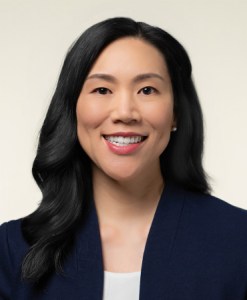In March 2018, we gathered 1,200 community development professionals in Miami for the National Interagency Community Reinvestment Conference and explored the complex intersections between issues such as neighborhoods, health, and climate as well as the role of community reinvestment in promoting equitable development. Over the next few weeks, we will share videos and reflections from the conference, organized around some of the event’s key themes.
Why We Focused on Inclusion and Racial Equity
One of the cross-cutting themes of the conference was inclusion, grounded in the foundational principle of equal opportunity for all, and particularly for us at the SF Fed, the aspiration that all people would be able to contribute to and benefit from economic growth. But we also felt it was important to explicitly identify racial equity as a theme, recognizing that many of our systems have been biased to distribute opportunity to some, at the expense of others. For example, the community development field’s origins are rooted in the Community Reinvestment Act (CRA), which was designed to be a corrective response to the racially discriminatory practice of redlining. This systematic denial of mortgage credit access to communities of color contributed to neighborhood segregation and disinvestment, which has had long lasting ripple effects on racial disparities in wealth, health, employment, and numerous other outcomes. Despite the role that race played in catalyzing CRA, the regulation itself was written to be “race-neutral” and the modern application of the law looks only through the lens of income. This raises practical questions around how the community development field can intentionally promote racial equity, and the search for answers is only becoming more urgent as the national conversation on structural racial inequity continues to unfold.
Because the community development field’s work is solely oriented around the classification of “low- and moderate-income,” it can feel daunting to broach the subject of race. But rather than letting discomfort be a barrier to the achievement of a just and equal society, we have an opportunity as a field to develop our capacity to engage in meaningful, productive conversations on advancing racial equity. It’s like building a muscle—the process begins with learning the proper form and putting in the intentional effort, and although there may be some soreness at first, it will get stronger with use. To that end, the conference highlighted plenary speakers and breakout sessions that explicitly addressed inclusion and racial equity in order to provide a forum for the broader field to participate in these important conversations.
Check out the videos and hear from national experts
The event opened with Raphael Bostic, President and CEO of the Atlanta Fed, who shared his thoughts on the future of the industry, the role of the Federal Reserve in community development, and his own current research on equitable economic development.
In a TED Talk–style series on the main stage, professor john a. powell, Director of the Haas Institute for a Fair and Inclusive Society at the University of California Berkeley, introduced the audience to the framework of Targeted Universalism, which revises the usual approach of universal strategies (such as universal health care) to achieve universal goals (such as improved health), and instead suggests using targeted strategies to reach universal goals (such as focusing on access to care), recognizing that different groups are situated differently in society with respect to resources and institutions. Camille Busette, Director of the Race, Prosperity, and Inclusion Initiative at The Brookings Institution, highlighted research revealing the stark impact of racism and inequality on the long-term prospects for black boys, and shared ideas on how to create brighter futures for the next generation. And Noel Andrés Poyo, Executive Director of the National Association for Latino Community Asset Builders, closed the session by reminding us that we all have a role to play in how we address the big and complex issue of economic inequity, particularly through financial services and the opportunities created through community development. (Watch the full session facilitated by Sameera Fazili, Senior Community and Economic Development Advisor at the Federal Reserve Bank of Atlanta.)
In addition, I had the privilege of moderating a breakout session on promoting racial equity through community development with Isela Gracian (East LA Community Corporation), Jeremie Greer (Prosperity Now), Dwayne Marsh (Race Forward), and James Wahls (The Annie E. Casey Foundation). The conversation began by exploring the concept of racial equity from the perspective of neighborhoods, household wealth, and the role of investments. We then turned to the topic of “race neutral” versus “race conscious” policy and practice, and finished off with a discussion on the role of partnerships in advancing racial equity. The panelists shared insightful examples from their own work and engaged the audience in a lively discussion on how the community development field can make a difference. (Watch Part 1 and Part 2 of the audience discussion.)
As a field, we have a lot to unravel and learn on the topic, but we can take the first step by being explicit about our intentions and goals in pursuing racial equity as an outcome. Together, we can continue to lift up new ideas, test innovative approaches, and foster a shared commitment to becoming a more just and equitable society.
Watch the full set of conference recordings focused on inclusion and racial equity, and stay tuned for our next installment of videos from the 2018 National Interagency Community Reinvestment Conference.
The views expressed here do not necessarily reflect the views of the management of the Federal Reserve Bank of San Francisco or of the Board of Governors of the Federal Reserve System.
